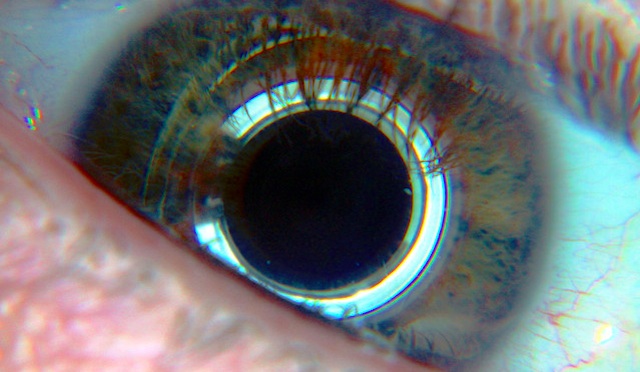Wearable tech is finally moving from the realm of fantasy to reality--with a vengeance.

Google's Project Glass is in limelight at the moment because it's amazing technology that's only now becoming viable, even while it's been a Star Trek staple for years. And Glass is actually just one component in a quiet revolution in wearable computing that's going on all around you--which may change how you learn about just about everything.
Of course Google's not alone, and the New York Times pointed out this week that Google's arch-rival Apple has recently filed a patent for a similar sort of head-worn device (just the latest of many Apple's filed over a long period). And where Google and Apple tread, others will follow.
Head-worn displays are just the most visible part of the wearable computing revolution, and the seemingly quite determined rise of smartwatches represents an almost equally exciting aspect of the tech. These watches connect to your smartphone typically over Bluetooth, and alerting you via their interface. The idea is that it's often more convenient to glance at your wrist versus fishing your phone out of a pocket (which is why, if you think about it, wrist watches replaced pocket watches). Even Apple's Siri is a form of wearable computing, because as an "invisible" interface, she can whisper in your ear and listen to your commands via a headset without you having to get your phone out.
Wearable computing is simply the next evolution of the smartphone--the device we're carrying around more and more (50% in the U.S. now), and which we're adopting so quickly that mobile-only access to Facebook jumped 23% since just this March.
And all of these wearable systems, from the smartphone up to Glass are designed to do one thing: deliver information to you while you're on the move. Or standing still, for that matter, because you're wearing them more and more of the time.
But ultimately, this isn't why you're going to adopt this tech.
You won't buy Glass to be able to read your tweets while making a drink in your office coffee room, read those critical emails while you jog, video-cast the concert you're watching to a friend, or play a whole new genre of game. These will be the hooks that get you interested, of course, but the real benefit of wearable computing is a little like the real reason Groupon exists: It's not to sell you discount coupons, but to alert you to nearby products and services that you may not have encountered before, with a price-discount incentive, in the hope that you deliver more trade to that merchant in the future.
The real reason wearable computing is useful is because while you're wearing it, each device will be frantically pinging out radio waves--it'll be hunting for 4G signals from cell towers, sniffing for free-access Wi-Fi points, checking your position using A-GPS, and quite possibly listening for Bluetooth signals and the faint signals of an NFC point. You'll become a cloud of radio signals that tell your device where you are and what's nearby and broadcasting snippets of information about you out to the world. At first this latter part will be something you control tightly, in the same way not everyone checks in at places via Foursquare...but ultimately you'll relax about it. And advertisers among a host of other industries will love it.
As an example, think about whether you'd accept a location-sensitive alert on your smartwatch that offers you a discount in a local coffee shop. You can also ponder whether instead of seeing lots of billboards for products you have no interest in, you'd prefer seeing superimposed digital ads for things you may like or need. Consider the moment when your wearable tech, via Facebook data and a social gifting app, reminds you that it's a friend's birthday and that they love cupcakes--so why don't you drop by a new, nearby cupcake store at lunchtime to buy them a gift? There will also be moments when your friends video-call you to say they've discovered an amazing new bar, "look at it!", and you'll reconsider your plan to stay in and watch TV.
Wearable computing may be the ultimate device in the new discovery economy.
[Image: Flickr user pasukaru76 ]
Chat about this news with Kit Eaton on Twitter and Fast Company too.